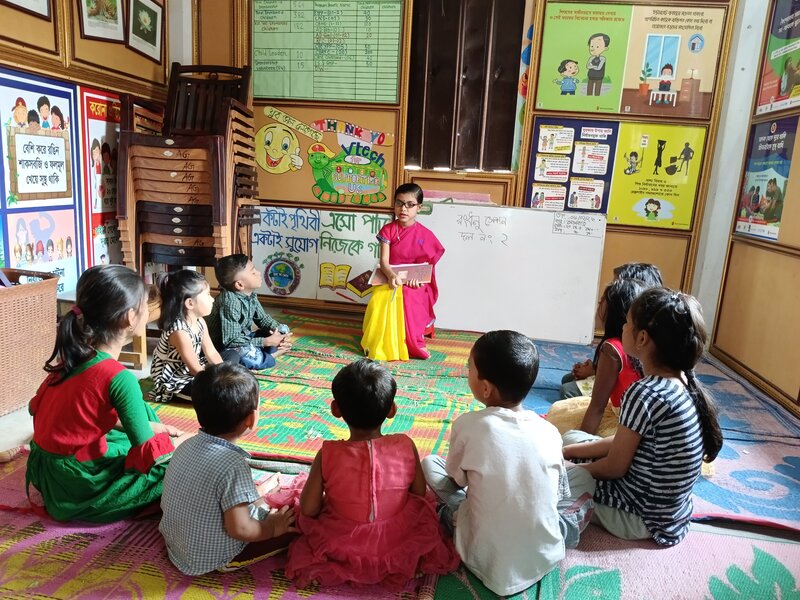
INTRODUCTION
MSS has been implementing Save the Children’s sponsorship funded program named ShishuderJonno-Integrated Child Development Program (SJ-ICDP) since 2015. The program addresses the need for overall development of 0-under 19years urbanunderprivileged children through holistic approach. Moreover, SJ-ICDP aims to achieve its targeted goal providing various services by strengthening existing interventions and integration between/among components by itself and making linkage with development partners and service providers including government and like-minded non-governmental organizations,local government bodies, educational institutes, CBOs in program area. ShishuderJonno team of Save the Children in Bangladesh and Technical Assistance Providers of Save the Children International are providing technical support towards successful execution of SJ-ICDP.
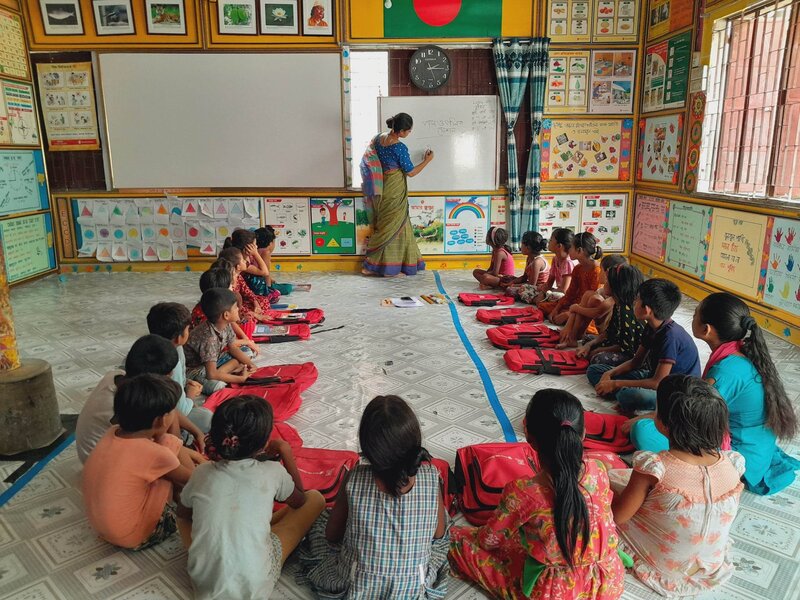
GOAL & OBJECTIVES
Goal: Children learn and develop to their full potential
Objectives:
- Strategic objective 1: Care giving knowledge and practices for children 0-8 years
- Strategic objective 2: Improved learning outcomes for all children through quality basic education
- Strategic objective 3: Improved learning and development outcomes for all boys and girls which includes health and nutrition related knowledge, attitudes, practices and behaviors
- Strategic objective 4: Increased use of key maternal, newborn, child health and nutrition practices and services
- Strategic objective 5: Adolescents contribute positively to well-being and betterment of society
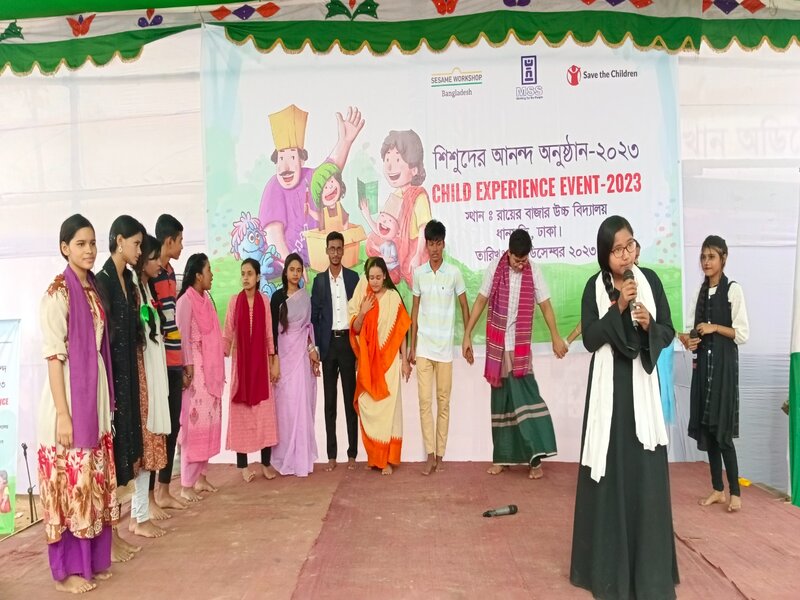
PROGRAM LOCATION & STRATEGY
Program location: Rayerbazar (Ward No.34), Town Hall Camp (Ward No.31), Chand Udyan (Ward No.33), Sunibir Housing (Ward No. 30) under Dhaka North City Corporation and Baroikhali (Ward No. 14 of Dhaka South City Corporation) of Mohammadpur Thana.
Strategy and approach: 1) Resource Center (RC) as multipurpose learning hub 2) Community based 3) School based 4) IT infused interventions and 5) Making strategic partnership with potential government and non-government stakeholders.
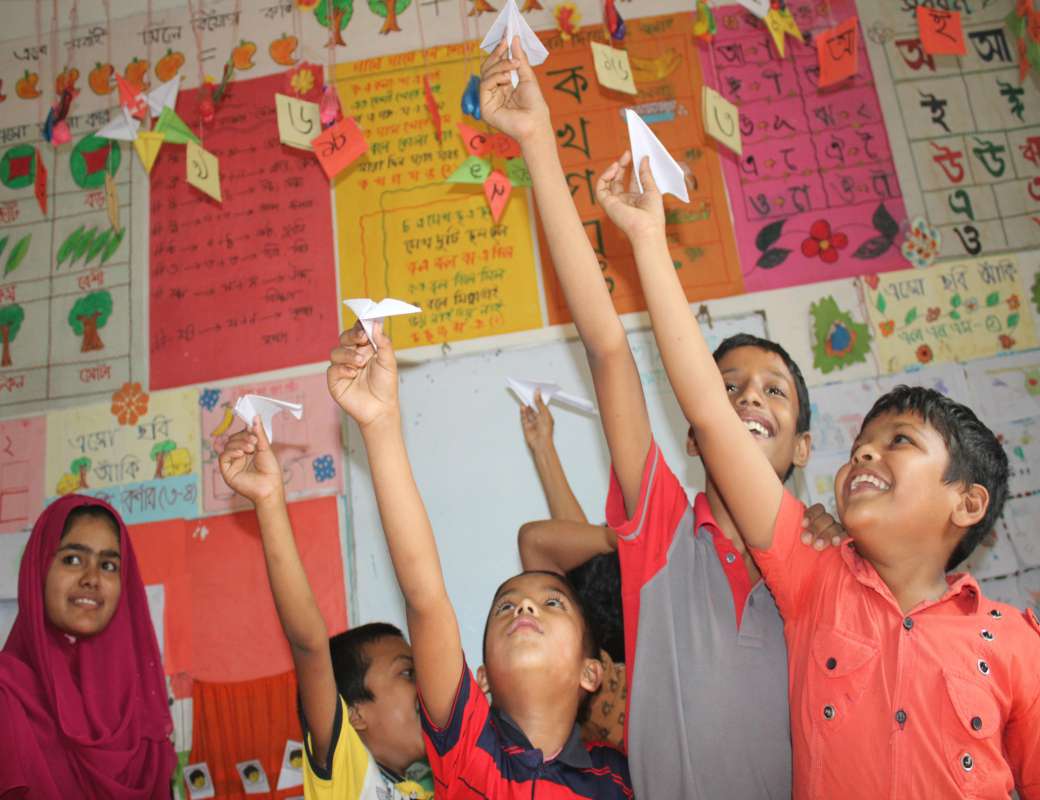
SPONSORSHIP OPERATION
It’s a marketing tool making a bridge between a child in need with one compassionate person/ sponsor. Becoming a sponsor means giving a child an opportunity to grow up healthy, educated and safe – forever changing their life and future which linkage to SJ-ICDP program goals and strategic objectives. A total of 4000 sponsored and enrolled children (as of Sep 1, 2020) is under SJ-ICDP, which is a continuous operational activity for functioning the fund system. Case History (CH) collection for newly enrolled children, 30 Day Letter collection from newly sponsored children, Reply letter for sponsors, gift distribution and gift acknowledgement photo sending to sponsors through, sponsored and enrolled child tracking, Annual Family Update (AFU), Mid-Year Eligibility Check (MYEC), Proactive Annual Letter (PAL) and sponsorship marketing and retention material collection are the major activities of this component. These activities have been accomplished under the guidance and supervision of Save the Children country office.
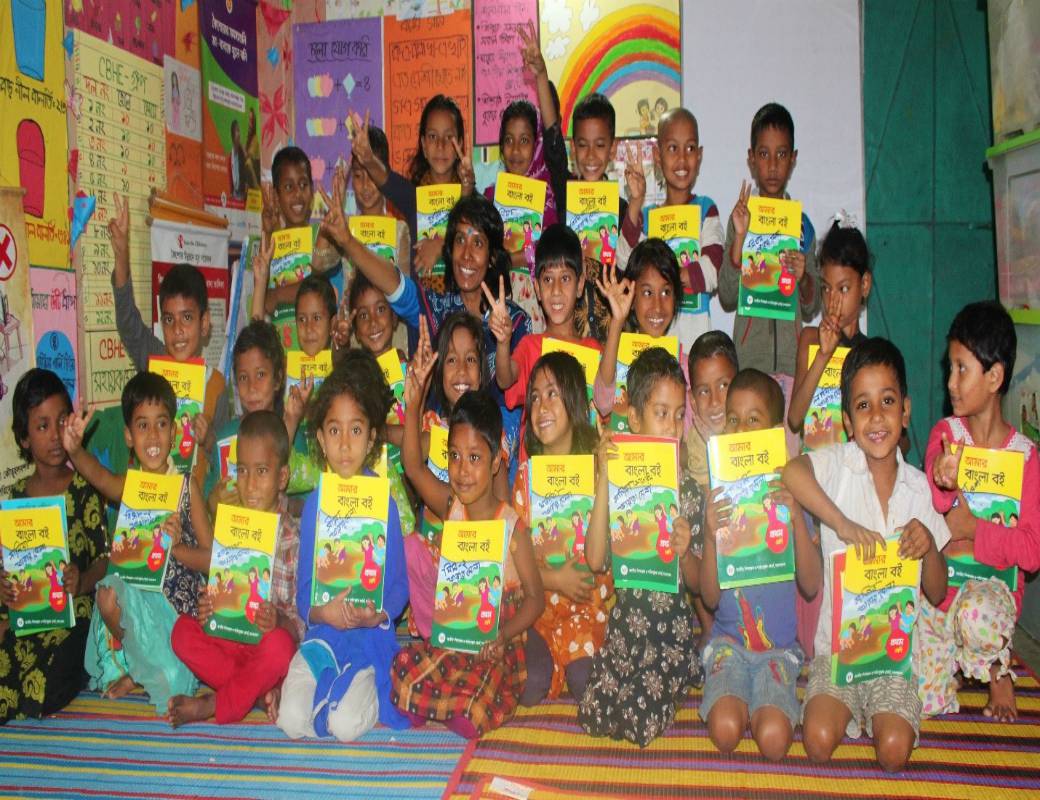
EARLY CHILDHOOD CARE & DEVELOPMENT
ECCD works for improving child development outcomes along with caregiving practices and behaviors to ensure a foundation of the children for education and smooth transition into formal schooling, more academic performance and successful completion of primary cycle. Home based follow up and counseling, Early Stimulation (ES) and Growth Monitoring Promotion (GMP) campaign materials distribution, Emergent Literacy and Math (ELM) session, Fathers Focus Initiative (FFI), Play Learning Package (PLP) and capacity development for Govt. Pre-Primary School teachers and materials support to those schools are the major activities of this component.
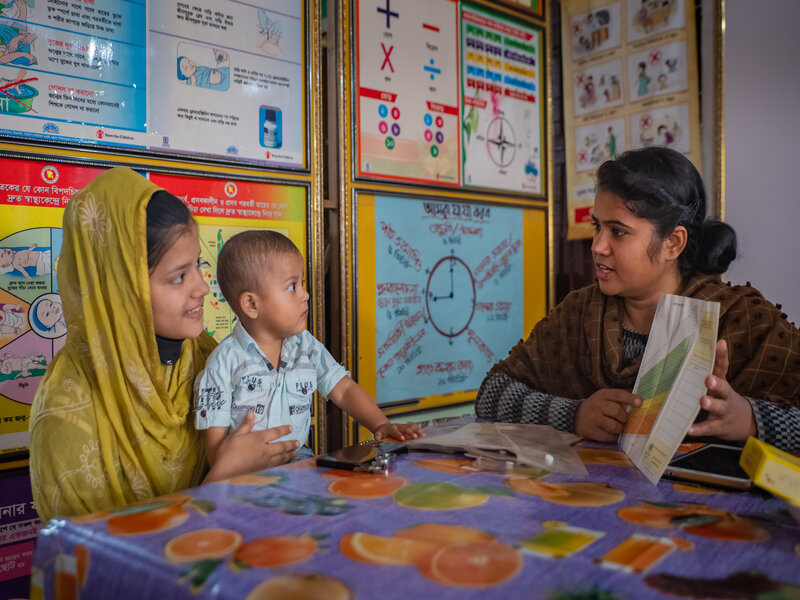
MATERNALl NEWBORN CHILD HEALTH & NUTRITION
Aimed at making children healthy, safe, educated and empowered, the MNCHN component targets pregnant women, their husbands and in-laws, recently delivered women (till 42 days), newborn (0-28 days) and under-5 children (29 days to 59 months) for providing services such as Pregnant Women (PW) counseling, Ante Natal Care (ANC), Post Natal Care (PNC), Growth Monitoring Promotion (GMP) campaign for under 5 children, nutrition sachets distribution, referral health services and Iron Folic Acid (IFA) distribution etc.
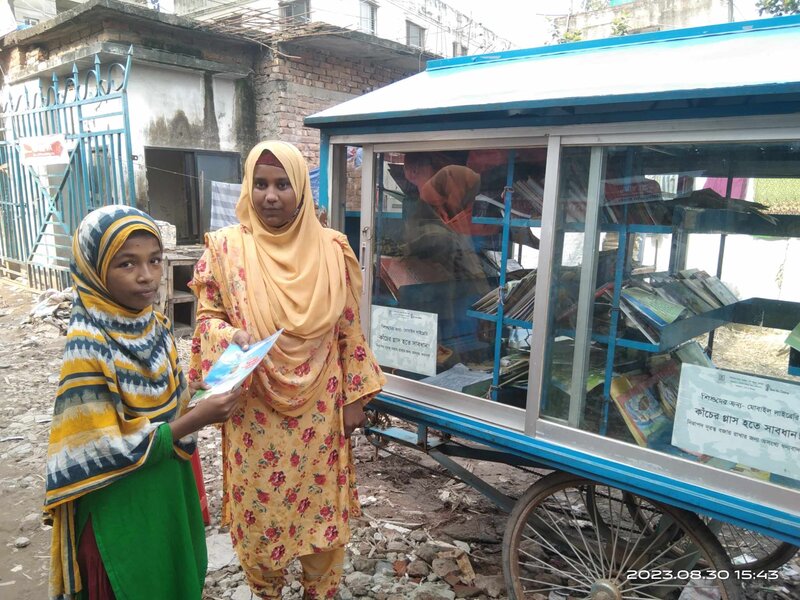
BASIC EDUCATION
This component provides support to out of school children aged 7-10 years for school readiness conducting Resource Center (RC) based Literacy and Numeracy Sessions (LNS). Promoting reading habit among the children aged 6-12 years through Reading for Children (RfC) session, e-Boost (messaging through cellphone and local cable TV network) and capacity building of government teachers are the major interventions of BE.
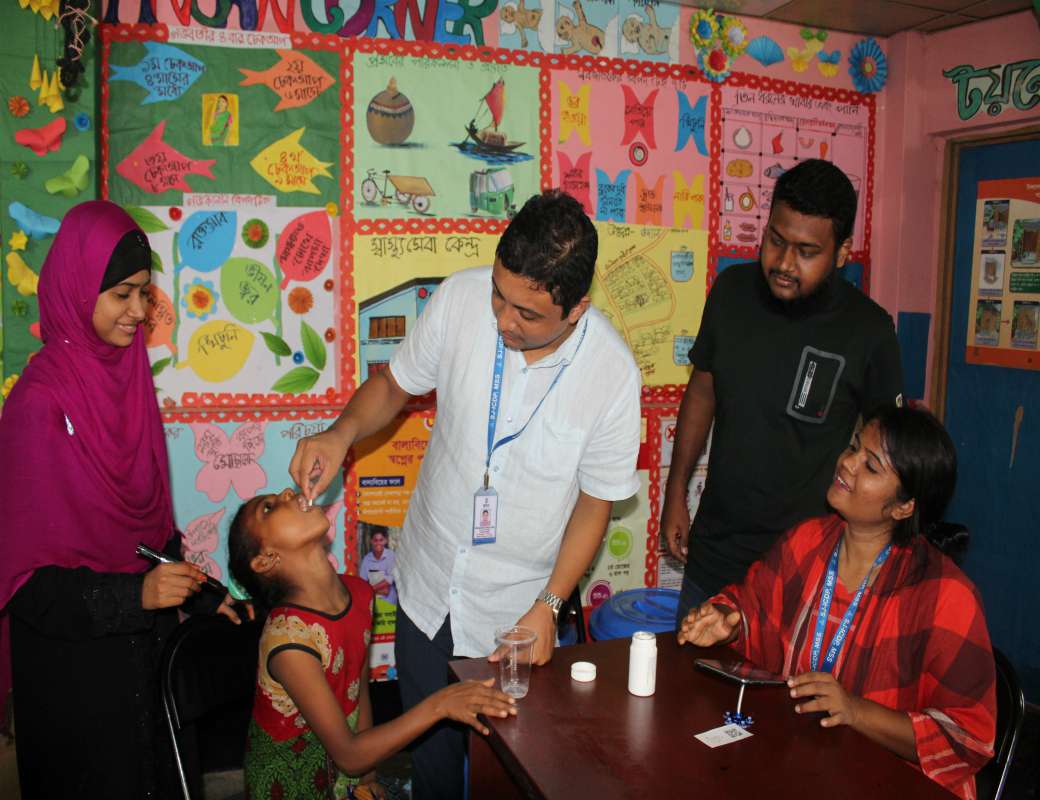
SCHOOL HEALTH & NUTRITION
Improved use of services in health, hygiene &nutrition and practice as well is the key objective of SHN component. Deworming the children aged 5-16 years, Community Based Health Education (CBHE) sessions, household-based primary waste management, miking for raising community awareness on hand-washingand boiling water for drinking, teachers’ training for promoting First-Aid services and hand washing at Government Primary Schools (GPS) are major activities of this component.
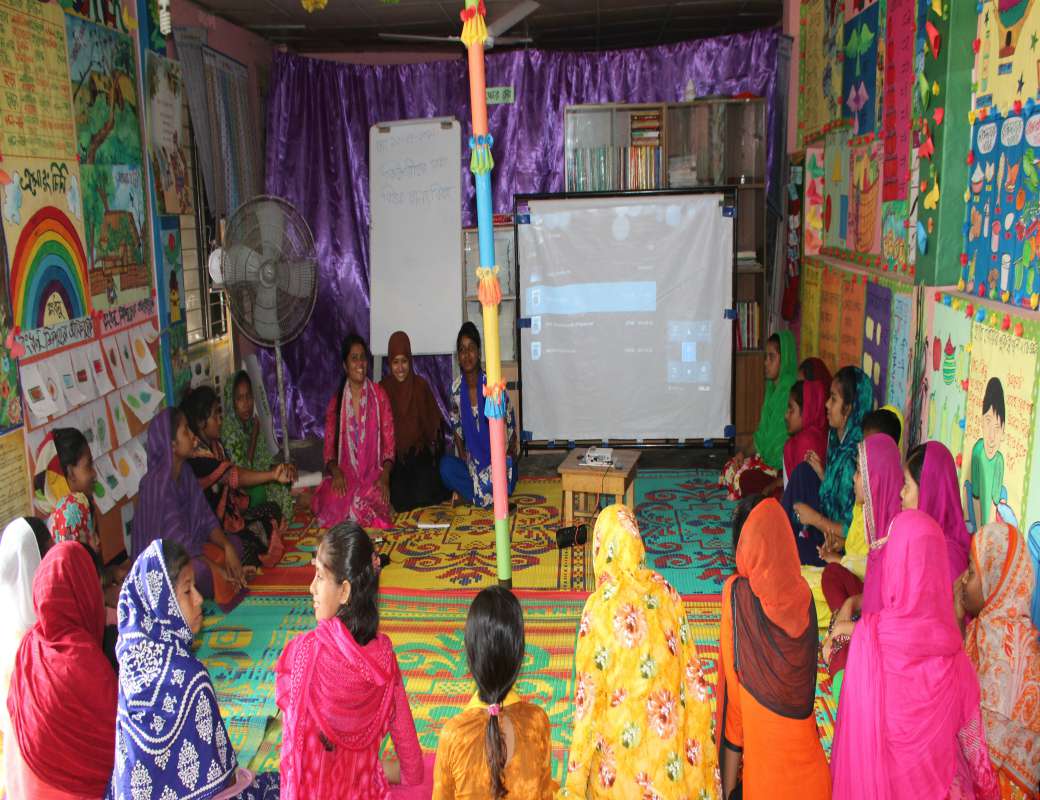
ADOLESCENT DEVELOPMENT
It works for making a healthy and successful transition of adolescent through puberty to young adulthood. It also aims to reduce adolescents’ vulnerability through providing health, educational, economic and social well-being services, so that they can contribute positively towards the betterment of the society. Major interventions under this component are Adolescent Sexual and Reproductive Health (ASRH) session both at community and school level, Menstrual Hygiene Management (MHM) education, vocational training, making job linkages and refer to health facilities nearest health service center.
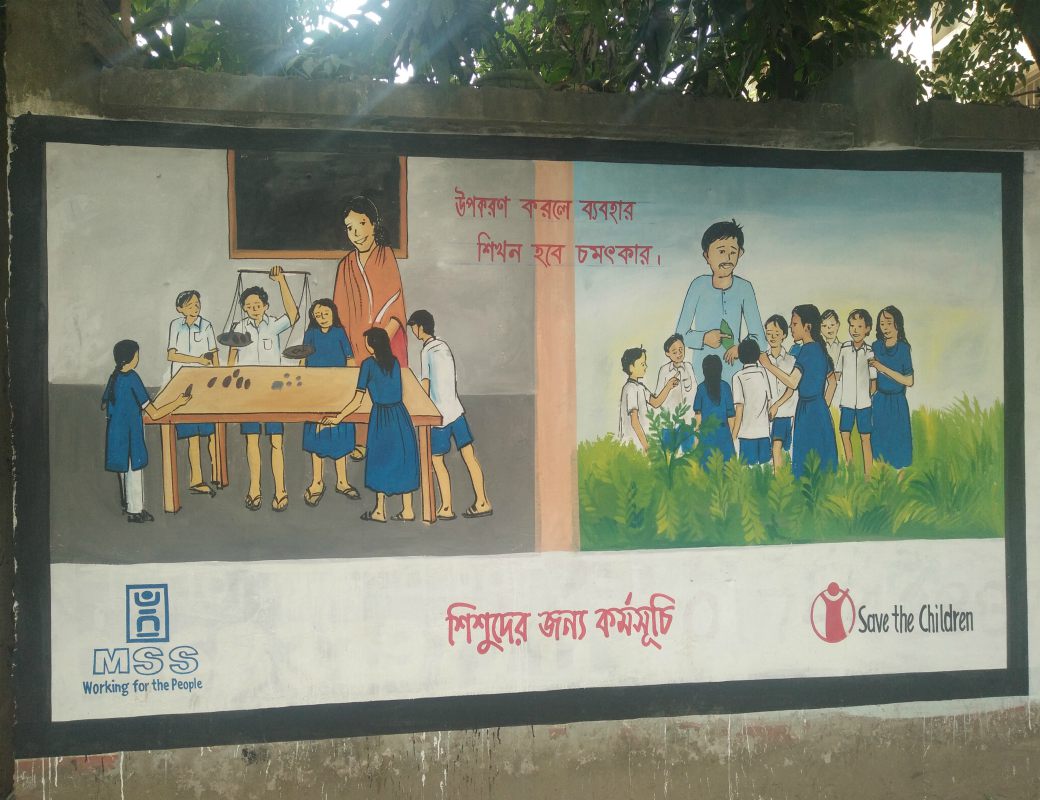
CHILD PROTECTION
As a cross cutting theme, it functions integrated way with all the five core components supporting to maintain child protection and safety aspects in respective program intervention and promoting protection focused activities that influence the core program areas. Theater for Development (TFD) on different issues, wall painting of government primary schools highlighting child protection issues, birth registration, positive parenting messages, positive discipline in schools and capacity building of school teachers are the mentionable interventions of this component.
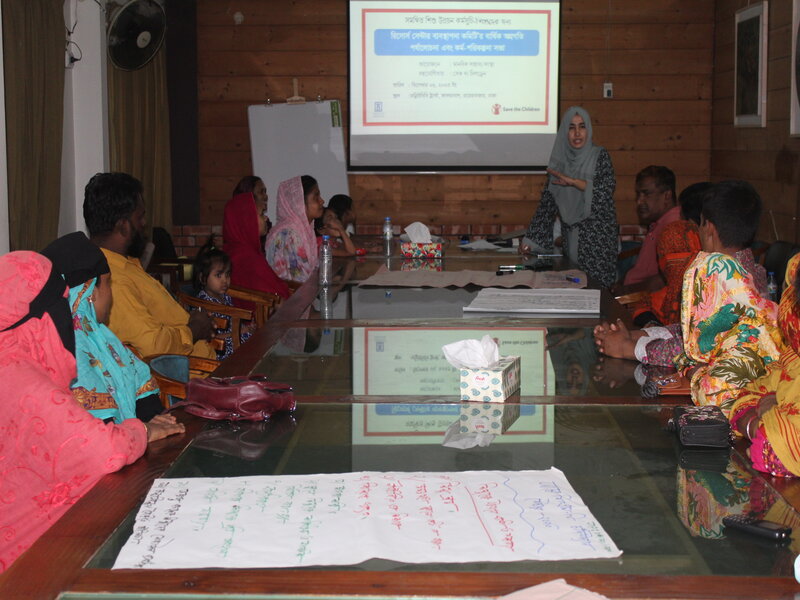
CHILD RIGHTS & GOVERNANCE
This intervention stresses the need for improved governance (accountability, resource allocation and participation in decision making process) and public services as well as building the confidence and capacity of civil society, children, youth and community members to claim their rights in a different way. Child rights situation monitoring by SJ Child forum members (previously known as National Children Taskforce-NCTF), capacity building and knowledge management, dialogues and public hearing sessions and child rights week observation are the notable activities under this component.
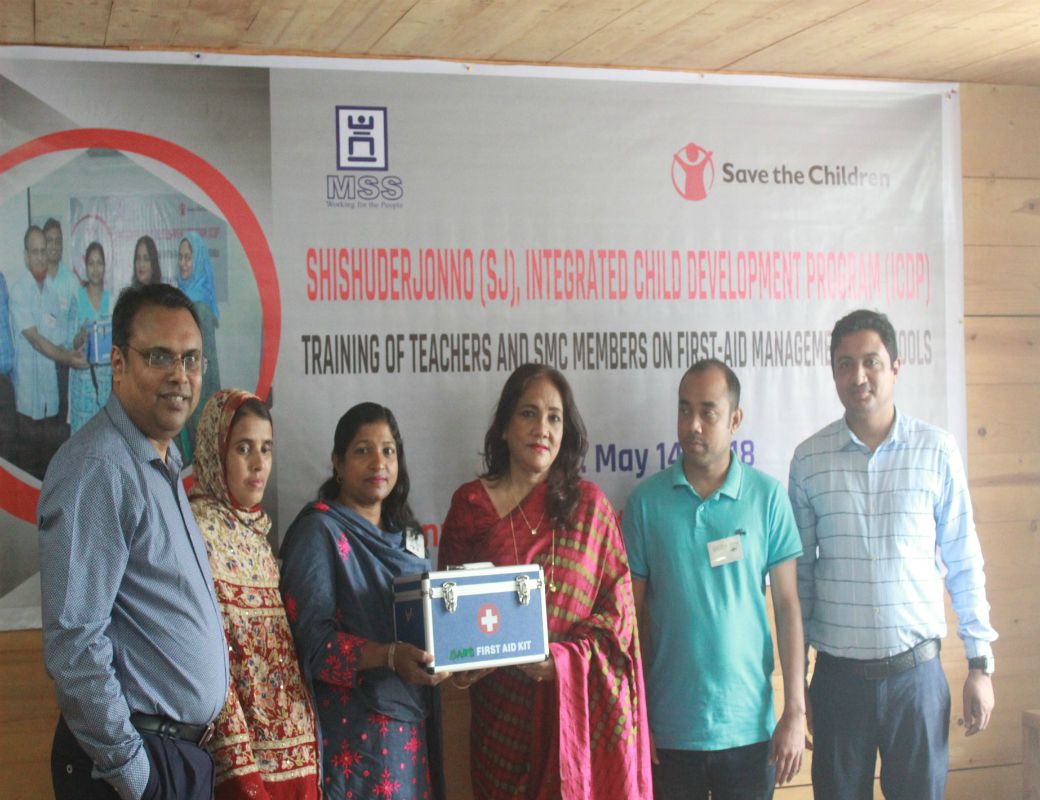
MONITORING, EVALUATION, ACCOUNTABILITY & LEARNING
TSince the establishment of SJ-ICDP program, all the program activities are being supervised and monitored by the systematic MEAL process guided by Save the Children with detailed MEAL plan, tools and techniques including monthly Key Process Indicator (KPI) report, Quality Benchmark, accountability, data quality assessment, annual results indicator report, Results Review Workshop (RRW), learning and knowledge management.